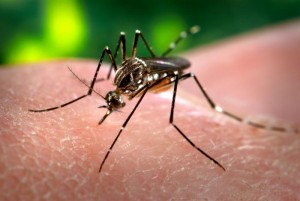 The terrifying prospect of a mosquito transmitted virus that can cause early birth loss and birth defects has made Zika Virus all the rage in the media over recent months. They also have found this virus can be sexually transmitted and transmitted by blood transfusion, further fueling the media fire. Is it all that serious or is it media hype? What do you need to do? Dr. Scott recently participated in a Zika Virus Workshop and has the answers to those questions for you.
The terrifying prospect of a mosquito transmitted virus that can cause early birth loss and birth defects has made Zika Virus all the rage in the media over recent months. They also have found this virus can be sexually transmitted and transmitted by blood transfusion, further fueling the media fire. Is it all that serious or is it media hype? What do you need to do? Dr. Scott recently participated in a Zika Virus Workshop and has the answers to those questions for you.
First of all, the bad news. Zika Virus is that serious. The mosquitoes that transmit it, Asian Tiger Mosquito and Yellow Fever Mosquito, are prevalent in the Southern half of the United States, all along the East Coast and in the Eastern half of the Midwest. Early birth loss and birth defects are real for pregnant women that become infected. Infants can be born with microcephaly (smaller than normal heads) and may have other neurological problems. In some people, Zika Virus can lead to Guillain-Barre syndrome, an auto-immune syndrome that affects your nervous system. Finally, it is true that it can be sexually transmitted – usually from a man to his partner (13 sexually transmitted cases have been documented so far in the United States).
Now for the good news. There have been ZERO cases of locally mosquito transmitted Zika Virus in the Continental United States. As of this writing, there have been 935 cases in the Continental United States and all of them were travel related, meaning the disease was picked up by the person while on a trip to an area where the disease is locally transmitted. More good news is that, apart from the potential birth defects, the symptoms of the disease are mild to non-existent and only last a few days. The symptoms are similar to a mild flu with one exception, conjunctivitis (red eyes). Most people will not show any symptoms at all. Luckily, the incidence of Guillain-Barre syndrome is extremely low. Only 4 of the 935 cases in the U.S. led to Guillain-Barre. It’s also good that, if you get Zika Virus, you become immune to future infection and there is no effect on future pregnancies. Further, infected individuals are only carriers for Zika Virus for about 10 days. Finally, Zika Virus is not transmitted from mosquitoes to their offspring. The same mosquito must bite an infected person and then bite an uninfected person to transmit the disease. All this is very different from West Nile Virus, which is transmitted from an infected mosquito to its offspring, allowing future mosquito generations to infect people.
So what do you need to do about Zika Virus?
- If you are pregnant or think you will become pregnant soon, don’t travel to areas where Zika Virus is active. An updated list of those areas can be found at http://wwwnc.cdc.gov/travel/page/zika-information and currently includes many countries and territories in The Carribean, Central and South America and The Pacific Islands
- If you must travel to areas where Zika Virus is active, take precautions against being bitten by mosquitoes. Precautions include wearing long sleeves and pants during dusk and dawn and wearing insect repellent.
- If you must travel to areas where Zika Virus is active, also take precautions against being bitten by mosquitoes for 10 days after you return. This will reduce the possibility of you spreading the virus to others around you.
- If you travel to areas where Zika Virus is active, take precautions with your sexual activity for 10 days after you return. Of the 388 travel related cases in the United States, 8 of those were sexually transmitted.
